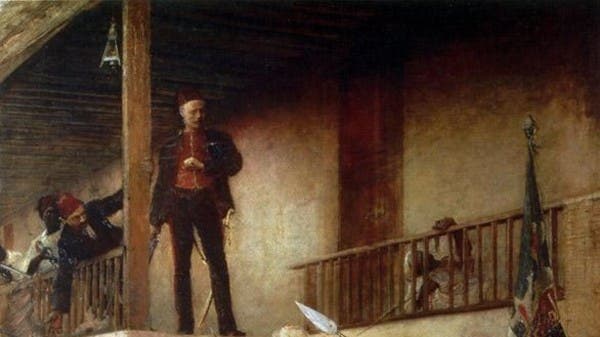An oil painting depicting the killing of General Gordon
Historical stories
The British called on their country’s government to intervene to break the siege on General Charles George Gordon and help him leave Khartoum
In late January 1885, the British were stunned after hearing the news of the death of General Charles George Gordon, classified as one of the most important military commanders in the British army. After months of siege, the Mahdist forces, in the midst of the Mahdist revolution, invaded the capital, Khartoum, and besieged the location of General Gordon, who was executed on the spot. Gordon’s death came to arouse great resentment among the British, who criticized their government’s delay in moving to save him.
From China to Sudan
Charles George Gordon, born in Kent in 1833, ranks as one of the most famous British generals of the colonial period. During his march, he sent the latter on an expedition to Beijing in the midst of the Second Opium War. With the Taiping Rebellion, the Chinese authorities entrusted Gordon in 1862 with the task of commanding a corps that consisted mainly of a significant number of European and American military advisors. Thanks to this, Gordon earned the nickname “Gordon of China” and received many Chinese and British military decorations.
A painting of Gordon while he was in Khartoum
By 1874, Gordon was sent to Egypt to support Khedive Ismail in Sudan. With the dismissal of Khedive Ismail in 1879 and the fall of Egypt under the British Mandate in 1882, the British tended to take care of the issue of Sudan, which lived during that period on the impact of the Mahdist revolution that broke out in 1881 under the leadership of Muhammad Ahmed bin Abdullah bin Fahal, who assumed the role of the Mahdi.
Gordon’s execution
In addition, the British sent General William Hicks to Sudan and entrusted him with the task of putting an end to the Mahdist revolution. During November 1883, William Hicks was defeated at the Battle of El Obeid before he was killed in an attack on November 5, 1883.
Faced with this situation, British Prime Minister William Gladstone entrusted General Charles George Gordon with the task of securing the exit of all British and Egyptians from Khartoum by creating a safe passage towards Egyptian territory.
While preparing to leave Khartoum, Gordon was surprised by the alliance of the northern Sudanese tribes with the Mahdist revolution. Because of this, the British general found himself trapped in Khartoum. Because of the siege, Gordon proceeded to build defenses with barbed wire and fortify the masonry to fight the Mahdist forces. In conjunction with this, Gordon corresponded with the leader of the Mahdist revolution, Muhammad Ahmed, offering him the idea of handing over the city and withdrawing all foreign forces from Khartoum.
Over a period of about a year, Gordon was able to repel the attacks of the Mahdist forces. With the British newspapers reporting news of his military successes in Sudan, the latter turned into a hero in the eyes of the British, who demanded that their government move to help him by sending military corps to break the siege on Khartoum. In the face of great public pressure, the British government agreed to send a military campaign to help Gordon and break the siege on Khartoum.
Moreover, this decision came late. On January 26, 1885, the Mahdist forces entered Khartoum and executed General Gordon, who had previously held the position of governor-general in Sudan.
Read also
#Historical #stories #delay #evacuation #Britain #lost #famous #general #Sudan
2023-04-25 04:52:00

